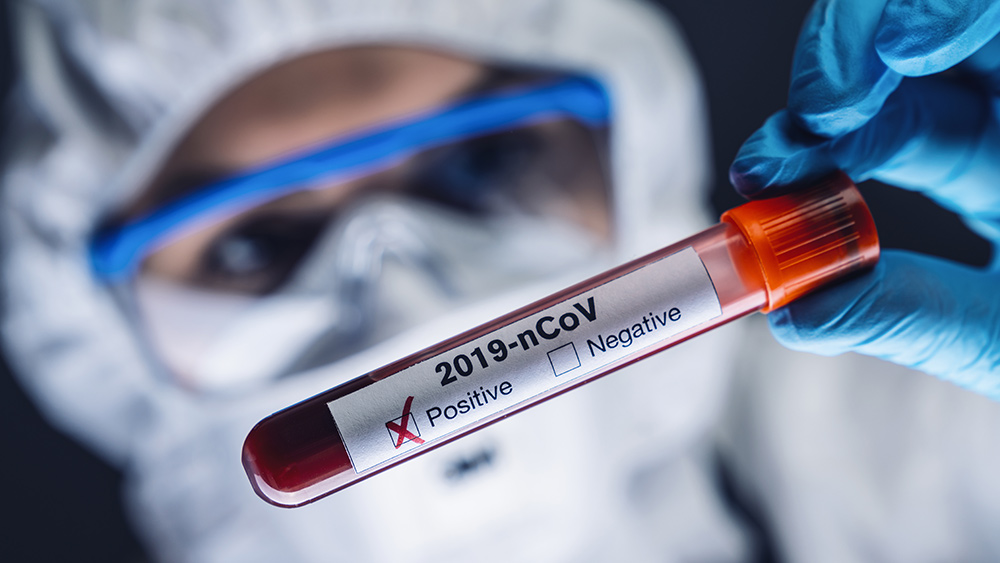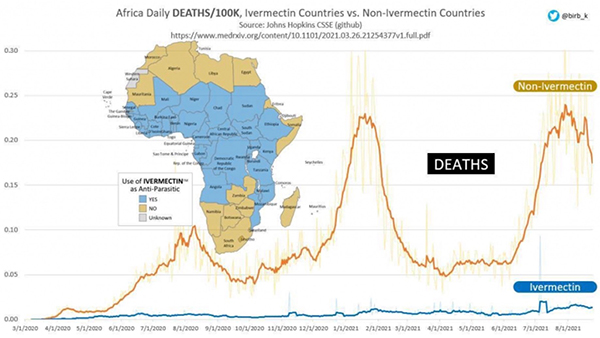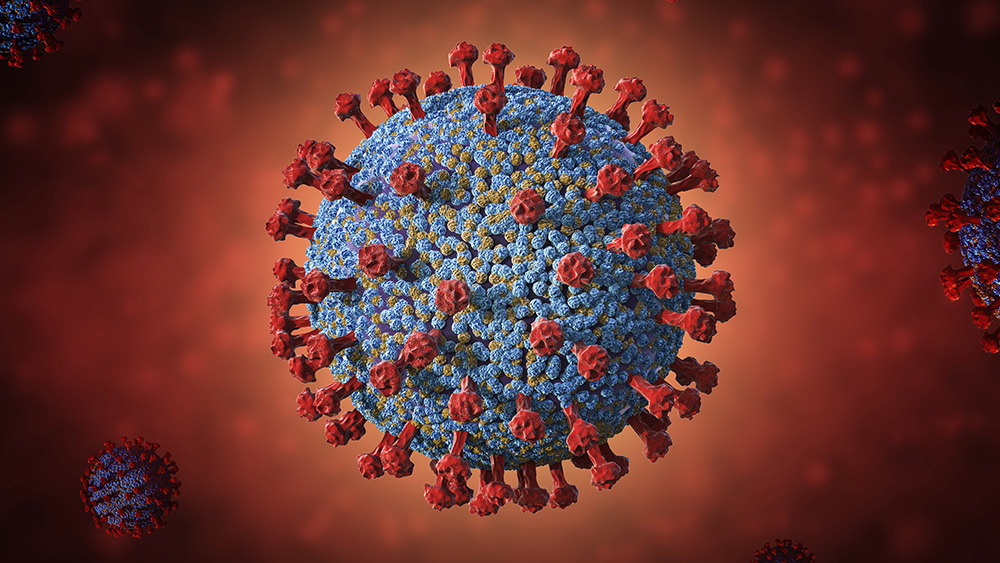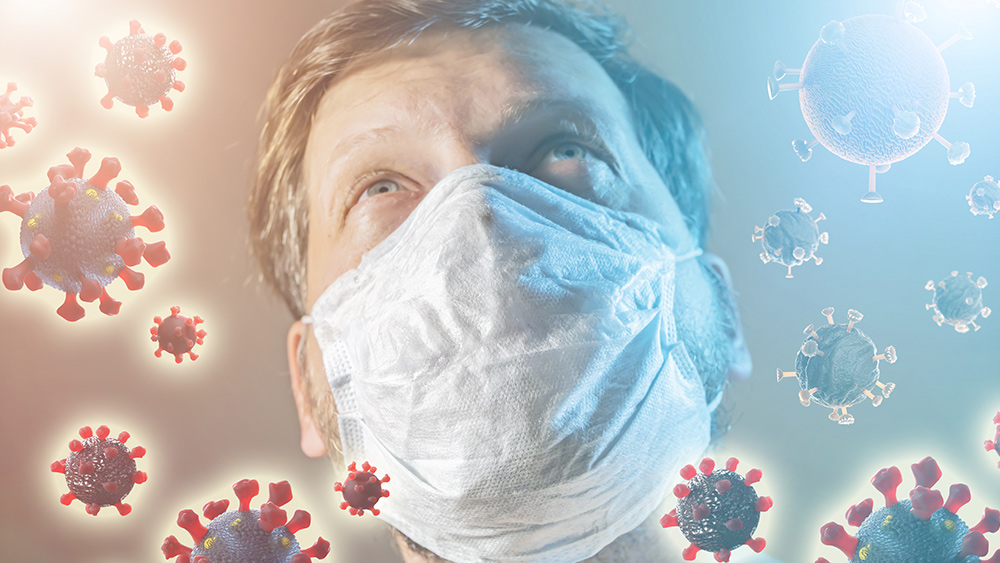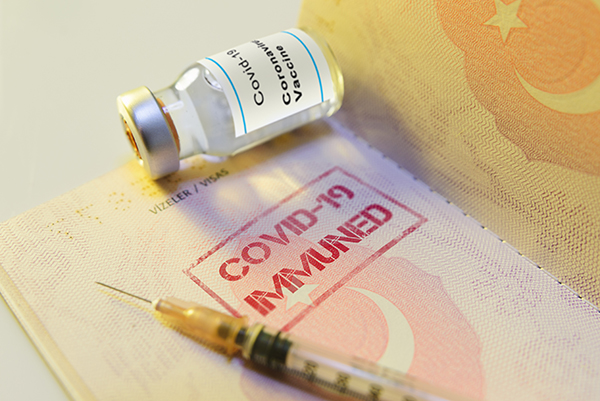Patient who recovered from coronavirus in 2020 rushed back to hospital after baffling “relapse”
03/17/2021 / By Zoey Sky
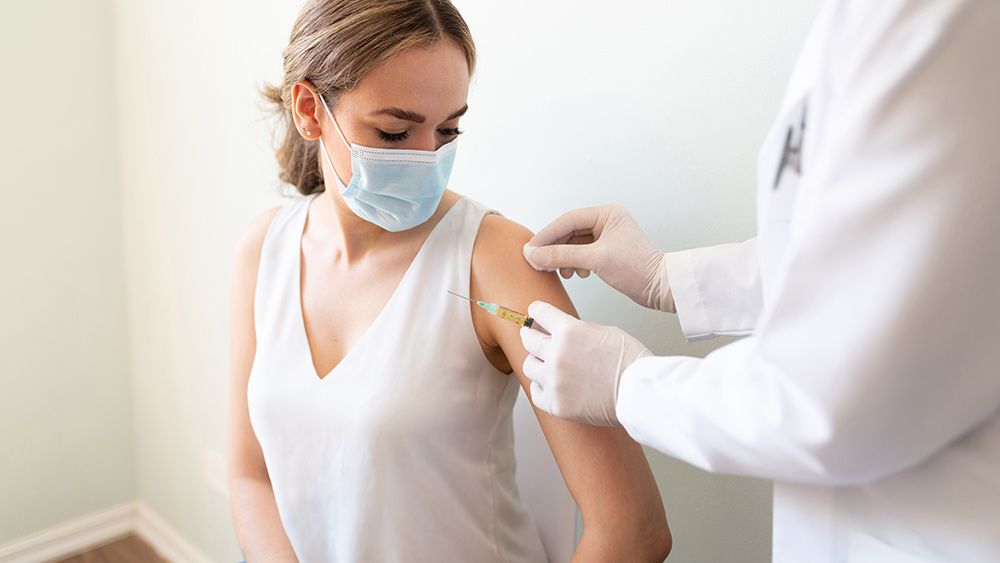
As the coronavirus (COVID-19) continues to spread and infect countless people, some are hoping that vaccines can help protect them from the disease.
However, one woman from London has reported that even after recovering from the coronavirus in 2020, she relapsed this year after experiencing worse symptoms.
A mysterious “relapse” worse than the first diagnosis
Megan Peacock, a 27-year-old retail worker from Brisbane, said that she first recovered from coronavirus almost a year ago. Back in 2020, Peacock suffered intense body aches, fatigue and headaches for two weeks until she finally recovered and was able to return to her daily activities.
However, on Jan. 29 this year, she because sick again. Peacock remains bedridden after spending time in the hospital.
She added that she feels worse now than when she was first diagnosed in March 2020 after following a flight home from London.
Peacock explained that she was working when she “suddenly fell ill.” She started sweating heavily until she felt she needed a change of clothes, and she was dizzy enough that she realized she was getting sick again.
After leaving work early, Peacock went home and was asleep for 18 hours over a 24 hour period. She has remained bedridden since then.
Peacock’s newest symptoms include:
- Chronic headaches
- Body aches
- Fatigue
- Joint pain
- Nausea
- Sore throat
- Sweating
Peacock reports that her symptoms are “more intense” compared to when she was first diagnosed with coronavirus in 2020. These days, Peacock often wakes up feeling weak.
To address her symptoms, she takes vitamin D supplements, sleeps more and takes hot baths as she tries to recover. Peacock has undergone several tests, including chest X-rays, an MRI brain scan, blood tests and urine samples.
Despite these tests, doctors remain baffled about her relapse. (Related: Worries mount as coronavirus appears to disable the immune cells that fight it off, reactivating in some people.)
Coronavirus relapse is becoming more common worldwide
Desperate to figure out what was wrong with her, Peacock reached out to other patients with coronavirus online. According to the people she talked to, her condition is “becoming more common by the day.”
Peacock said that the troubling thing about having coronavirus is that you may think that you’ve already recovered, but you can relapse suddenly and without warning. The baffling condition is being called a “COVID relapse,” concluded Peacock.
Findings from a recent study published in the journal Viruses suggest that coronavirus can “hide” in the brain and cause relapses in those who seem to have already recovered from the infection.
Scientists from Georgia State University (GSU) conducted the study on mice and results revealed that animal subjects infected with coronavirus through their nasal passages developed “severe illness due to brain infection even after the virus had left their lungs.”
Mukesh Kumar, lead researcher and study co-author, posited that the results can help explain why some patients who have already recovered from the infection can still relapse and even die.
In a press release, Kumar said that virus tends to hide in the brain, which is why researchers often see severe disease and “multiple symptoms like heart disease, stroke and all these long-haulers with loss of smell, loss of taste … All of this has to do with the brain rather than with the lungs.”
From the lungs to the brain
Results from the GSU study showed that mice had signs of the virus in their brains six days after it “disappeared” from their lungs.
The researchers hypothesize that the belief that coronavirus is more of a respiratory disease “is not necessarily true.” The moment coronavirus infects your brain, it can affect anything because your brain controls major organs like the lungs and your heart.
The brain is a very sensitive organ and it acts as “the central processor for everything.”
Kumar also expressed concern that coronavirus may cause long-term neurological conditions like multiple sclerosis and Parkinson’s disease. Just like Peacock first though she was clear after she recovered from coronavirus, Kumar thinks that it may not always be the case.
Continued research may be required to determine how exactly coronavirus affects the brains of patients.
Common coronavirus symptoms
According to the Centers for Disease Control and Prevention (CDC), patients with coronavirus often experience different symptoms that may range from mild to severe. Symptoms can also appear at least two to 14 days after exposure to the virus.
You may have coronavirus if you experience the following symptoms:
- Congestion or runny nose
- Cough
- Diarrhea
- Fatigue
- Fever or chills
- Headache
- Muscle or body aches
- Nausea or vomiting
- New loss of taste or smell
- Shortness of breath (difficulty breathing)
- Sore throat
This list doesn’t include all possible symptoms of COVID-19. Seek emergency medical attention if you or someone you know is showing any of these signs:
- Inability to wake or stay awake
- New confusion
- Pale, gray, or blue-colored skin, lips, or nail beds (May depend on the skin tone.)
- Persistent pain or pressure in the chest
- Trouble breathing
Call 911 or call ahead to your local emergency facility if you need medical attention and tell the operator that you are seeking care for someone who has or may have coronavirus.
Visit Pandemic.news for updated reports on the coronavirus pandemic and how to protect yourself from it.
Sources include:
Tagged Under: coronavirus, Coronavirus relapse, COVID-19 relapse, Flu, infections, london, outbreak, pandemic, quarantine, reinfection, relapse, superbugs, testing, UK, virus, Wuhan coronavirus
RECENT NEWS & ARTICLES
COPYRIGHT © 2017 SUPER BUGS NEWS


